‘Waste of time and money’: Corruption watchdog under fire from one-time allies
The Albanese government’s NACC has failed to deliver ‘anything useful’ since it began, say many of the leading figures who campaigned for it, with significant cases like the $2.4m payout to Brittany Higgins apparently buried.

The Albanese government’s much-vaunted anti-corruption watchdog has failed to deliver “anything useful” in the more than 20 months since it was established, say many of the leading public integrity figures who campaigned for it, with significant cases such as Linda Reynolds’ referral of the commonwealth’s $2.4m payout to Brittany Higgins apparently buried.
Many of those campaigners, including senior barristers and former Supreme Court judges, believe the integrity of the National Anti-Corruption Commission has been so tainted by its refusal to accept a corruption referral from the Robodebt Royal Commission that it needs new leadership to replace Commissioner Paul Brereton.
The NACC has been mired in scandal since it declined to investigate six public officials identified by the Robodebt Royal Commission for possible corruption, a decision that led to a finding of “officer misconduct” against Mr Brereton over a conflict of interest in the case.
The harshest criticism for the NACC is that it lacks almost any kind of transparency, with the Higgins case one of dozens either abandoned, shrouded in unnecessary secrecy, or thrown in the too-hard basket.
Senator Reynolds lodged her complaint with the NACC in October 2023 against Attorney-General Mark Dreyfus over his handling of the massive compensation payment made to Ms Higgins but 16 months later the case appears to have gone nowhere.
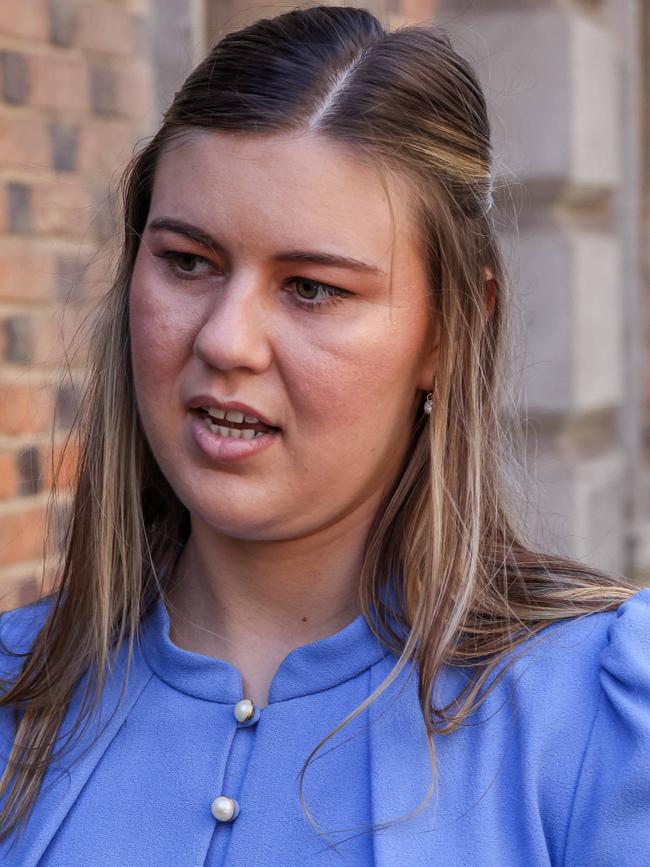
The NACC declined to answer questions about the status of the case, saying only that the referral “remains under consideration”, but The Australian understands that the settlement is not being investigated.
The commission has received at least $125m from the taxpayer since its inception on July 1, 2023, but has delivered no independent convictions and has initiated only one matter currently before the courts.
The NACC claims on its website that “there have been seven successful convictions resulting from commission investigations” – but all of them were commenced by the commission’s predecessor, the Australian Commission for Law Enforcement Integrity.
Former NSW Supreme Court judge Anthony Whealy KC doesn’t mince his words about the performance of the integrity body for which he had such high hopes.
“For the NACC and for what people expected of it, it’s hard to think of anything useful they’ve done in the time they’ve been operative,” Mr Whealy said.
“There have been the occasional release of statistics and so on, but no one really knows what’s going on there.”
“It’s obviously quite appropriate for them to be circumspect about releasing information about things they’re investigating but there are cases such as the Brittany Higgins one where there is such a high degree of public interest that it defies belief that they can’t be transparent enough to say, yes, we’re looking at it, or no, we’re not looking at, and if they’re not, to explain why.”
“It’s a matter of public interest at a very high level. I think, on balance, it is something that should have been looked into and if they’re not going to look into it, they should explain why.”
Centre for Public Integrity director Geoffrey Watson SC told The Australian he was very disappointed by the “overwhelming culture of unhelpful secrecy” and the “appalling response to the Robodebt referral”.
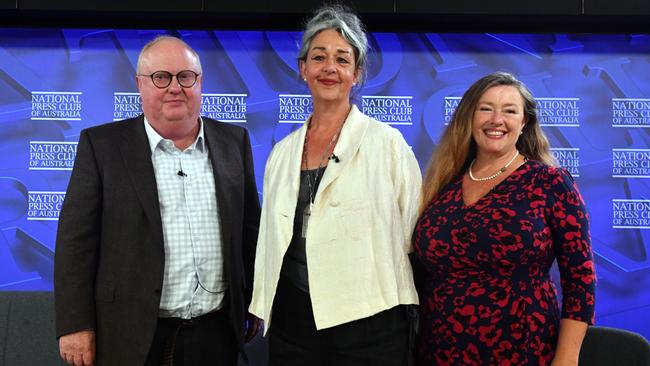
“It has been so far a waste of time and money,” Mr Watson said. “I’m putting that down to the leadership, that it’s just not being led adequately. As a corruption agency, it seems to go out of its way to find that it’s incapable of moving.
“It’s got the money, the skills and the resources to do it. If you can’t produce a report on anything in two years it’s time somebody went in there with a scrubbing brush.”
‘Wedded to secrecy’
Anthony Albanese pledged to deliver “a powerful, transparent and independent National Anti-Corruption Commission – one with teeth”.
But after its first 20 months in operation, former Victorian Supreme Court judge Stephen Charles KC, who wrote a book advocating a federal anti-corruption body and campaigned relentlessly for years, won’t even give it a bare pass.
“A bad fail,” he told The Australian. “I think the appointment of Paul Brereton has been shown not to be a success.”
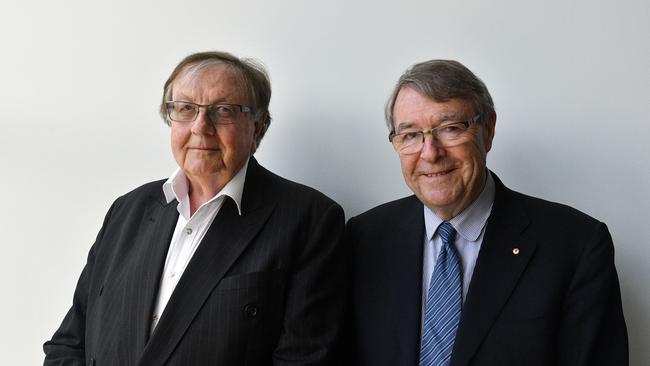
Mr Charles is not alone in pointing the finger at Mr Brereton, best known for presiding over the inquiry into allegations of war crimes by Australian soldiers in Afghanistan.
While none of those spoken to by The Australian doubted Mr Brereton’s personal integrity, some believed his military background was influencing his decisions.
“The general feeling is that Paul Brereton himself is wedded to secrecy,” said Mr Watson.
“I know Brereton quite well and I thought he was a very fine judge, but this job doesn’t suit him. I think he’s retreated into a kind of defensive attitude where he’s very secretive about everything and on the defensive.
“Now I just wonder whether it’s because of his military background because military people, as we’re all aware, thrive on secrecy.”
Higgins’ $2.4m payout
The Australian has been seeking answers on the status of the Reynolds referral since December 2023, when it was told: “The commission does not provide information to third parties about the receipt or status of individual referrals.”
Senator Reynolds declined to comment on her NACC referral but has previously confirmed her intention to lodge a complaint, claiming Mr Dreyfus, Finance Minister Katy Gallagher and Anthony Albanese had a “potential conflict of interest” based on their previous public statements about the Higgins case.
The Albanese government’s $2.4m payout relied entirely upon the former Liberal staffer’s version of events, despite contrary versions from key witnesses like Senator Reynolds who were effectively barred from a single-day mediation of her claim.
Mr Dreyfus threatened to tear up an agreement to cover Senator Reynolds’ legal fees in the dispute if she turned up at the mediation, meaning that Ms Higgins’ claims of mistreatment in Senator Reynolds’ office were not contested.

Lawyers describe both the amount and the speed of the settlement – finalised just days after Bruce Lehrmann’s rape trial was abandoned in the ACT Supreme Court – as “extraordinary” and “unprecedented”.
In his judgment in the Bruce Lehrmann defamation case, Federal Court judge Michael Lee found that Higgins made at least nine untrue representations when settling the deed with the commonwealth.
Mr Dreyfus has previously declined to answer questions from The Australian about the settlement, saying only: “The parties have agreed that the terms of the settlement be confidential. All claims against the commonwealth are handled in accordance with the Legal Services Directions 2017.”
Senator Gallagher has vigorously denied any involvement in the commonwealth’s settlement with Ms Higgins.
The Robodebt referral
Almost everything the NACC does is shrouded in secrecy. But right from the start the commission had one potentially explosive referral it couldn’t hide.
The royal commission into the Robodebt scandal had found the disastrous scheme wrongfully recovered $750m from 380,000 people using an automated income averaging system, and that former prime minister Scott Morrison had given “untrue” evidence in the witness box.
The royal commission referred the cases of six public officials – recommended for civil action or criminal prosecution in a secret sealed section of its report – to the NACC.
But almost a year later, the NACC shocked even its most devoted supporters when it declined to pursue the referral, claiming the case had “already been fully explored by the Robodebt royal commission”.
Instead, the NACC would “focus on ensuring lessons learnt”.
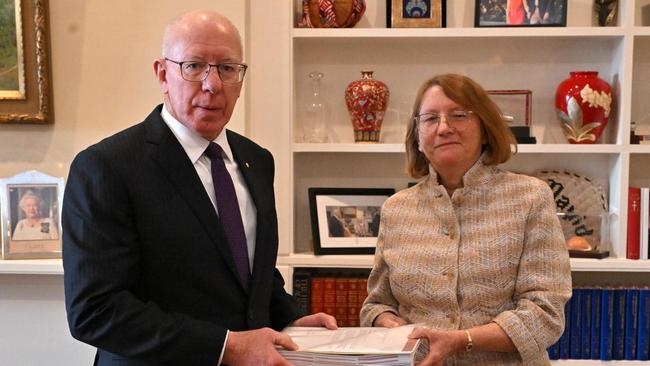
That response “was a disaster for the commission … and I’m not sure the NACC can recover from that sufficiently”, according to Mr Whealy.
Former judge Stephen Charles points out Robodebt royal commissioner Catherine Holmes had deliberately delayed handing down her findings to enable them to be immediately referred to the NACC. “I was intensely disappointed and astonished when the NACC refused to do it,” he said.
The response from the public was equally sharp. More than 1200 complaints flooded into the office of NACC Inspector Gail Furness (the watchdog’s watchdog) expressing “profound disappointment” about the decision.
Many pointed out that Mr Brereton and “Referred Person 1” were known to each other, and claimed the NACC had breached the public trust by not investigating the referrals.
In October last year, Ms Furness made a damning finding of “officer misconduct” against NACC commissioner Paul Brereton over his conflict of interest in the case – a person understood to be linked to Mr Brereton through his service in the army reserve.
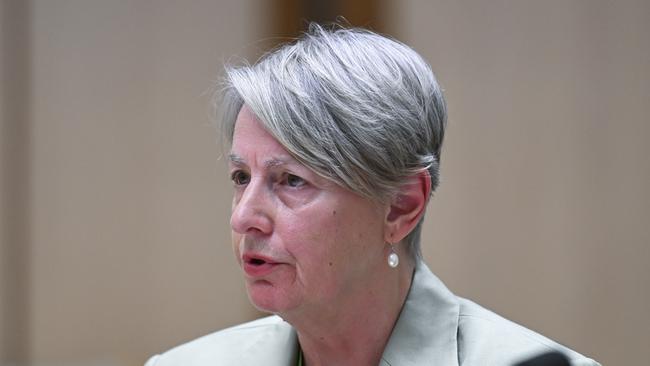
She found Mr Brereton should have gone further than delegating the decision, by removing himself from related decision-making processes and limiting his exposure to the relevant factual information.
Instead, Mr Brereton’s involvement in the decision-making “was comprehensive, before, during and after the 19 October 2023 meeting at which the substantive decision was made not to investigate the referrals,” she found.
Mr Brereton accepted – reluctantly, it seemed to many – that his judgment had been found to be mistaken, noting that “our system requires that we accept such findings, even when we don’t entirely agree with them”.
‘It was astonishing’
Former Queensland Court of Appeal judge Margaret White was horrified, arguing Mr Brereton’s error of judgment was “much more fundamental” than an appeal court overruling a trial judge.
“It was astonishing because this is something that judges every year of their judicial lives have to deal with, about issues of conflict,” Professor White told The Australian: “To have failed there gave me a great sense of discomfort about how they were managing other things that I knew nothing about.
“There’s a sense of real disappointment and a bit of sadness too, because we shouldn’t be frightened of things like this.”
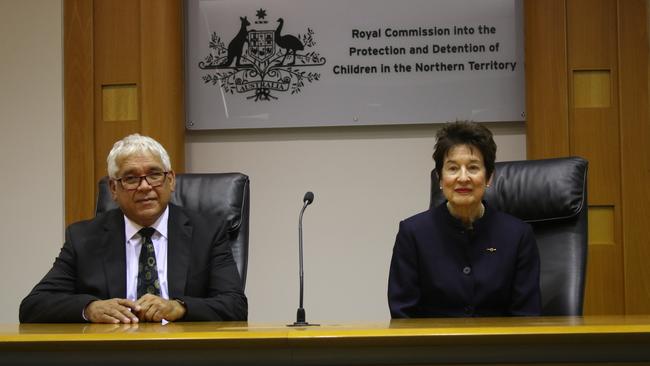
Professor White said the NACC needed to look beyond simply criminal convictions.
“A lot of people think corruption is money in a brown paper bag. But that’s the criminal side of it. What we saw in the public evidence in Robodebt was that there were many public servants who second guessed, or didn’t have to second guess they knew what it was that the ministers wanted, and so they did what they wanted.”
The NACC is already burdened by much greater limitations than most other anti-corruption bodies in Australia. Almost all of those to whom The Australian spoke were disappointed that the Albanese government, with the backing of the opposition, had introduced a requirement that public hearings would be permitted only in “exceptional circumstances”.
Anthony Whealy says he is hugely disappointed the NACC had not realised the expectations of so many of its supporters. “And I think while ever Paul Brereton is running the show, I don’t think it will reach those expectations and fulfil the job we wanted it to do.”
Geoffrey Watson describes the “exceptional circumstance” limitation as “an unnecessary clog to place upon the NACC’s powers”.
But he also notes: “We don’t even know that they have ever got to the point of saying, well, we would have done this (if we could). They haven’t told us what they’re doing, and as far as I know, they’re doing nothing.”
If you know more: rices@theaustralian.com.au




To join the conversation, please log in. Don't have an account? Register
Join the conversation, you are commenting as Logout